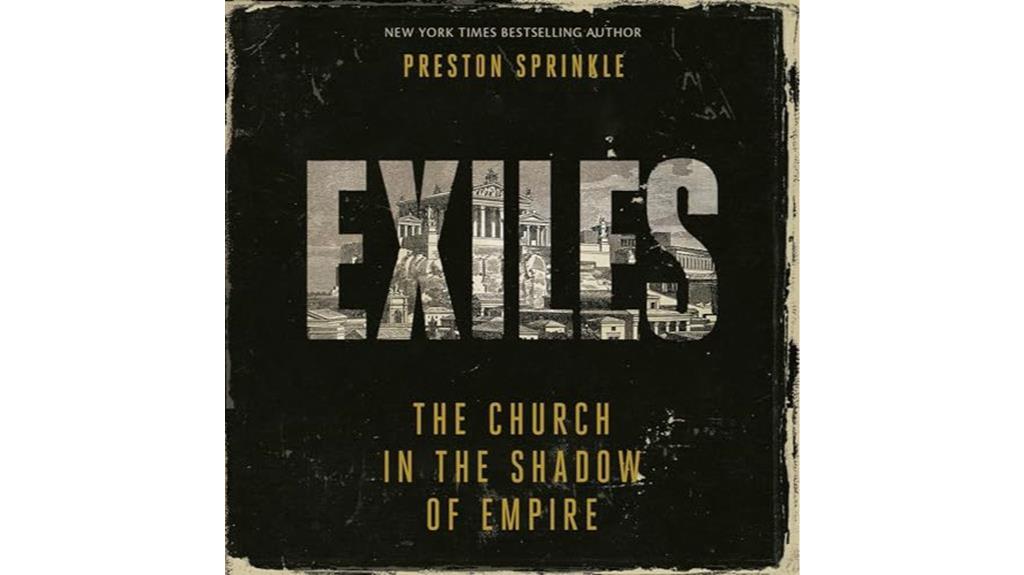Exiles Review: Challenging Perspectives on Faith and Politics
In a world where faith and politics often intersect in complex and sometimes contentious ways, 'Exiles Review: Challenging Perspectives on Faith and Politics' offers a nuanced exploration that pushes boundaries and questions conventional wisdom. Through a blend of historical context and theological depth, this narrative challenges readers to reconsider their assumptions and deeply contemplate the implications of their beliefs on societal engagement. As the narrative unfolds, it presents a thought-provoking journey that forces individuals to confront their allegiances and ponder the transformative power of faith amidst the political landscape, leaving a trail of questions that demand introspection and dialogue.
Plot
The plot of 'Exiles: The Church in the Shadow of Empire' intricately weaves together biblical theology, historical contexts of empires, and American political culture to challenge readers' perspectives on faith and society.
By delving into the complex interplay between these elements, the book invites reflection on the nature of allegiance, the role of the church in the modern world, and the implications of faith on political engagement.
Through a tapestry of historical insights and theological principles, readers are prompted to reconsider their assumptions about the intersection of faith and society.
The narrative unfolds with a sense of urgency, urging individuals to transcend conventional paradigms and embrace a deeper understanding of their identity as exiles in a world dominated by empire.
Narration
Through a compelling blend of historical insights and theological principles, the narration in 'Exiles: The Church in the Shadow of Empire' captivates readers, urging them to reexamine their understanding of faith, politics, and societal engagement.
By weaving together the intricate tapestry of biblical teachings, historical contexts, and contemporary challenges, the author invites readers on a journey of introspection and reevaluation.
The narrative challenges conventional wisdom, prompting individuals to question their allegiances and motivations in a world dominated by political powers and cultural norms.
It beckons readers to consider the radical call to be exiles in a society driven by empire, encouraging a shift in perspective towards a more profound allegiance to the kingdom of heaven.
This narrative not only informs but also inspires action, pushing readers to embody their faith in transformative ways within the complex fabric of society.
Summary
Drawing on historical insights and theological principles, the summary encapsulates the transformative essence of 'Exiles: The Church in the Shadow of Empire'. It compels readers to reevaluate their perspectives on faith, politics, and societal engagement. By challenging the conventional narratives that intertwine faith with political allegiances, the book dares individuals to consider their roles as citizens of a heavenly kingdom first and foremost.
Through thought-provoking arguments and a call to embody the values of Christ in a world dominated by empire, 'Exiles' pushes readers to reflect on the true essence of their faith and how it should manifest in their interactions with political systems. It urges a departure from the polarizing paradigms of left and right, advocating for a subversive, gospel-centered approach that disrupts the status quo with hope and conviction.
Conclusion
In conclusion, 'Exiles Review: Challenging Perspectives on Faith and Politics' offers a compelling examination of the complex relationship between faith, politics, and identity.
Through a blend of historical context and theological insights, readers are prompted to reevaluate their assumptions and consider the implications of their allegiances in an empire-dominated world.
This thought-provoking narrative challenges conventional narratives and calls for a radical reexamination of societal norms and behaviors.







